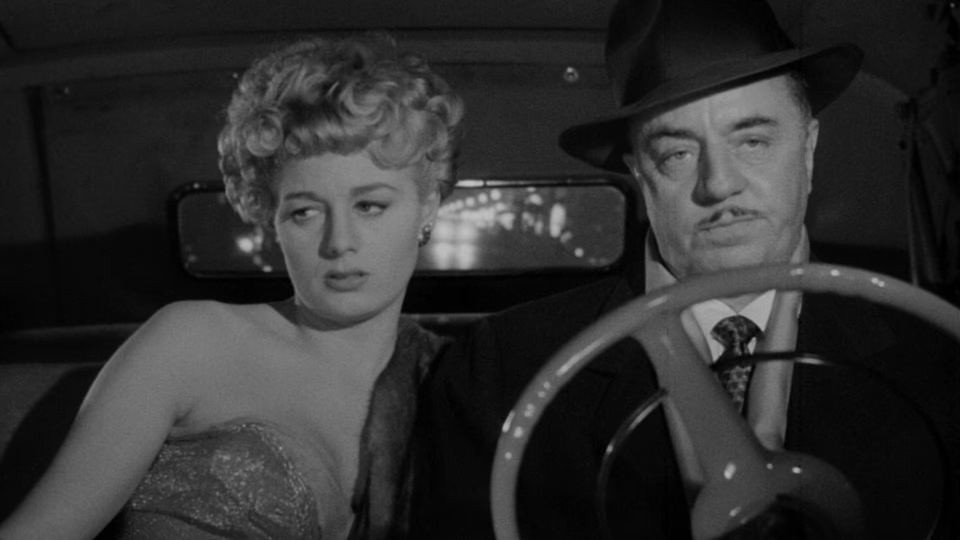Take One False Step

There’s a moment early in Take One False Step where William Powell, caught in yet another of the film’s contrived predicaments, flashes his familiar sardonic smile. For an instant, you glimpse what this picture might have been with a script worthy of its leading man’s considerable talents. Sadly, that moment passes quickly, and we’re left with a thriller that stumbles over its own implausible plotting with all the grace of its bewildered protagonist.
The story follows Powell as Professor Andrew Gentling, an academic who travels to Los Angeles seeking funding for his college, only to find himself framed for murder after a chance encounter with former flame Shelley Winters goes fatally awry. Add a rabid dog bite that puts him on a medical countdown, and you have the makings of a taut race-against-time thriller. Instead, what emerges is a film that seems determined to squander every opportunity for genuine suspense.
Powell, now 57 and looking every year of it, strains credibility as a man who supposedly romanced the 29-year-old Winters during wartime. But age isn’t the real problem here—it’s that the script gives us an academic who behaves with stunning stupidity at every turn. This is a man who, when confronted with a crime scene, manages to splash blood around like Jackson Pollock, then chooses to hide in a closet rather than flee through an open door. Yet when the finale demands it, he suddenly becomes an athletic wall-climber.
Winters does what she can with an underwritten role, sending up early warning signals that her character harbors dangerous instabilities. But the script fails to show us what Powell’s character ever saw in this woman, making their past romance feel like a narrative convenience rather than a believable relationship. The chemistry between them generates all the heat of a damp matchbook.
The film’s relationship with logic becomes increasingly strained as it progresses. Car accidents occur with the frequency of a Saturday matinee serial, each more absurd than the last. An early fender-bender leaves Winters with what appears to be a bullet wound to the head, while a later crash at approximately walking speed knocks Powell unconscious for hours—apparently because the plot requires it. When a supporting gangster meets his end at a railroad crossing, shuffling helplessly between two approaching trains like a vaudeville comic, any remaining dramatic credibility derails along with him.
The film has been categorized as film noir, but this classification seems generous. True noir requires more than shadows and night photography—it demands a cynical worldview and morally ambiguous characters navigating a corrupt universe. Powell’s professor is neither cynical nor morally complex; he’s simply an innocent man wrongly accused, making this more akin to a Hitchcockian thriller, albeit one lacking Hitchcock’s psychological insight or technical precision.
Despite these considerable flaws, Powell’s professionalism shines through. In the brief moments when the script allows him to display his natural wit and charm, we’re reminded why he was once one of Hollywood’s most engaging leading men. It’s painful to watch such talent wrestling with material this unworthy of it.
Take One False Step feels like the product of a studio system running on autopilot, grinding out formula pictures without regard for logic or character development. While Powell’s dedicated performance prevents it from being a complete disaster, this is ultimately a film that takes several false steps and never finds its footing.